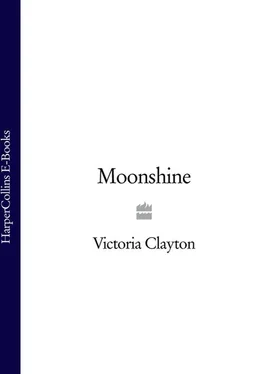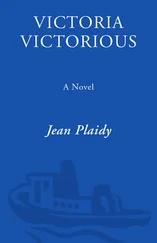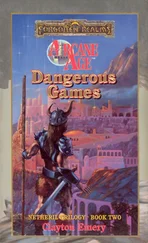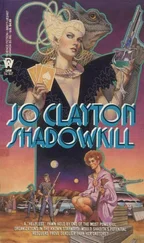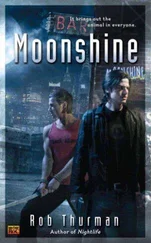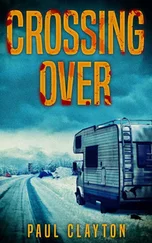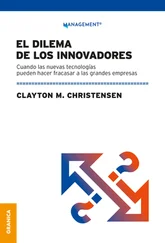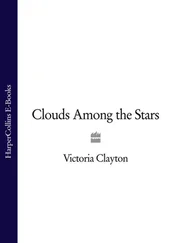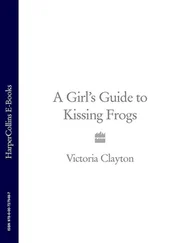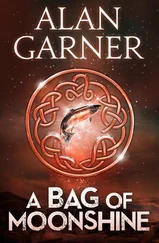‘Again that’s not easy to say in a few words. During the second quarter of the nineteenth century conditions for the peasantry were tough but they were healthy and happy enough if one can believe the historians. Thackeray, in his Irish Sketch Book of 1842 described the Irish as being like the landscapes: “ragged, ruined and cheerful”. But then they were struck by the worst disaster in Irish history: the Great Famine, when the potato crop failed four years in succession. Out of a population of eight million people one million died of starvation or disease. Two million, probably the brightest, most energetic ones, emigrated, mostly to England and North America. So much misery and loss is bound to have an effect on a nation’s psychology. A sort of fatalism, a melancholy, that leads to inertia.’
‘Oh yes, I see. But did we – the English I mean – do nothing to help?’
‘Not enough, in my opinion. Certainly not enough in the opinion of the Irish. But there isn’t enough time to explain exactly what happened. We’re coming into Ringaskiddy. That’s the ferry terminal. It’s another two or three miles to Cork itself.’
The ship was turning as sharply as a large ferry can, which is not very, and we were moving at a sluggish pace towards land. The terminal was the usual noisy, busy, ugly conglomeration of warehouses, cranes, lorries and moored craft. Much too quickly it increased in size. The propellers reversed to reduce our speed to dead slow and we drifted towards the quay. Until this moment I had been lulled into a state of passivity by the knowledge that there was no alternative to idleness while the ship was in motion. Now anxiety returned with full force.
‘I’d better go and get my things.’
‘No hurry,’ said Kit. ‘Most of the passengers are still asleep. They’ll take the cars off first.’
‘All the better. I’ll go before there’s a crowd.’
‘What’s your cabin number? I’ll fetch your cases for you.’
‘No, really. You’ve already been kind beyond the call of duty. And I ought to wash my face and brush my teeth.’
‘How are you getting to Connemara?’
‘Train. Apparently it takes all day to go a hundred and fifty miles. I have to change twice. Then a bus from Galway to Kilmuree. But I shall have scenery to look at.’ I tried to sound enthusiastic.
‘I’ve a better idea. For the next few weeks I’m travelling round the country spreading light and hope among my lonely authors. Part business, part holiday. There’s a delightful old boy on my list who lives near Westport. Writes books about geology. Sells about four a year but we like to diversify. He’ll be thrilled to see me a few days early and I can drop you off at your destination.’
‘You’ve got a car?’
‘Picturesque though a high-perch phaeton is, I find it inconvenient. And too exposed to the elements.’
‘I couldn’t possibly ask you to change your arrangements.’
‘But I can insist, truthfully, that I’m happy to do so.’
‘I’m being met at the bus station.’
‘All right. I’ll drop you there.’
‘But not until seven o’clock. In the evening, I mean.’
‘We’ll have a leisurely lunch on the way.’
It was too good an offer to refuse. I descended to collect my things. My cabin-mate was still asleep, lying on her back with her mouth open, snoring like a nest of wasps. The smell of horses had intensified. A wild creature with matted clown triangles of hair and smudged saucer eyes stared at me from the mirror.
‘My word!’ said Kit as I rejoined him on deck half an hour later. ‘I was beginning to worry that you’d jumped ship. But it was worth the wait. You look glorious. That colour is marvellous with your skin and hair.’
I felt a stab of pain then, remembering Burgo saying the same thing, almost word for word, about the pale yellow linen dress I had put on.
‘I don’t want to give the Macchuins the impression that the steamiron and I are unacquainted. My skirt not only bears all the signs of having been slept in but looks as though it might have been used as a picnic tablecloth as well.’
‘I’m not so conceited as to suppose that you put it on for me.’
Kit’s expression was non-committal but there was a slight sharpness in his tone. Had I sounded ungracious, I wondered?
‘There’s the old bus now.’ He leaned over the rail and pointed to a red sports car being driven off the ramp and along the quay. The hood was down so we could see quite clearly a man in overalls behind the wheel, playing with the dashboard and flashing the headlamps. Kit watched with the sort of glazed impassioned look that mothers get when people bend to coo admiringly into the pram.
We were the first passengers to present ourselves at customs and were through it in no time. Kit’s car gave a throaty roar at the first turn of the ignition key. My experience of cars was limited. In London I used buses and the underground. My father’s ancient Austin Princess and my mother’s battered Wolseley were my transport in the country. They rounded bends under protest and were rebellious when it came to starting. Kit’s car seemed barely able to contain itself as we trundled through the streets of Ringaskiddy. It had a gravelly growl and made little menacing rushes at obstacles, like a lion on a leash.
‘All the men are giving you envious looks,’ I said. ‘I don’t know anything about cars. Is it something terrifically glamorous?’
‘It’s an Alfa Spider. But it isn’t the car they’re jealous of.’
Some men consider it only polite to keep up a steady trickle of compliments.’ I liked Kit and I was grateful to him, but I had no heart for the game. To flirt successfully you must believe yourself to be desirable. I was near to hating myself. Depression threatened. I pushed it away. I owed it to Kit to be a cheerful passenger.
The urban sprawl at the outskirts of Cork offered nothing particular to admire but the surrounding countryside made up for that. It was at once apparent why Ireland was called the Emerald Isle. It was not just emerald, though. Different tones of green – olive, apple, lime, grass, sage and chartreuse – reflected the sun with a glossy luxuriance. Even the light was green.
‘That’s Blarney,’ said Kit, waving vaguely towards the west. I looked but saw only a church spire. He began to recite:
‘There is a stone there that whoever kisses,
Oh, he never misses to grow eloquent.
’Tis he may clamber to a lady’s chamber
Or become a member of Parliament.
‘I know which I’d rather,’ Kit went on. ‘As Topsy said, I’m mighty wicked and I can’t help it, but I lack the cold-blooded cynicism necessary to be a good politician.’
I glanced quickly at Kit’s profile but it was a picture of perfect innocence.
‘Look over there, to the north-west. The Boggeragh Mountains.’
I saw a series of massive heather-coloured triangles. We purred between stone walls that divided the land into tiny boulder-strewn fields while the trees laid blue and purple bars across the road, empty but for a few wandering sheep. Beside the road ran a sweetly purling river and seconds later we crossed it by means of a small hump-backed bridge.
‘What wonderful names. This really is fairy-land.’
‘Certainly it is. And you must be careful to keep on the right side of the good folk. They can be spiteful if crossed and they never forgive an injury.’
I examined Kit’s face carefully for signs that he was teasing me. He must have felt my eyes upon him for he turned his head briefly and smiled. As we drove north through the small town of Mallow and on towards the Ballyhoura Hills, I watched the landscape unfolding into higher and ever more beautiful curves and angles, marvelling that I had been ignorant all my life of so much beauty lying in wait across a small sea.
Читать дальше
